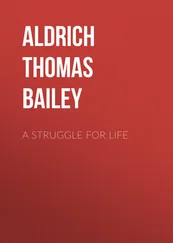Чарльз Дарвин - The Origin of Species by Means of Natural Selection Or, the Preservation of Favoured Races in the Struggle for Life
Здесь есть возможность читать онлайн «Чарльз Дарвин - The Origin of Species by Means of Natural Selection Or, the Preservation of Favoured Races in the Struggle for Life» весь текст электронной книги совершенно бесплатно (целиком полную версию без сокращений). В некоторых случаях можно слушать аудио, скачать через торрент в формате fb2 и присутствует краткое содержание. Год выпуска: 1999, Жанр: Биология, на английском языке. Описание произведения, (предисловие) а так же отзывы посетителей доступны на портале библиотеки ЛибКат.
- Название:The Origin of Species by Means of Natural Selection Or, the Preservation of Favoured Races in the Struggle for Life
- Автор:
- Жанр:
- Год:1999
- ISBN:нет данных
- Рейтинг книги:3 / 5. Голосов: 1
-
Избранное:Добавить в избранное
- Отзывы:
-
Ваша оценка:
- 60
- 1
- 2
- 3
- 4
- 5
The Origin of Species by Means of Natural Selection Or, the Preservation of Favoured Races in the Struggle for Life: краткое содержание, описание и аннотация
Предлагаем к чтению аннотацию, описание, краткое содержание или предисловие (зависит от того, что написал сам автор книги «The Origin of Species by Means of Natural Selection Or, the Preservation of Favoured Races in the Struggle for Life»). Если вы не нашли необходимую информацию о книге — напишите в комментариях, мы постараемся отыскать её.
The Origin of Species by Means of Natural Selection Or, the Preservation of Favoured Races in the Struggle for Life — читать онлайн бесплатно полную книгу (весь текст) целиком
Ниже представлен текст книги, разбитый по страницам. Система сохранения места последней прочитанной страницы, позволяет с удобством читать онлайн бесплатно книгу «The Origin of Species by Means of Natural Selection Or, the Preservation of Favoured Races in the Struggle for Life», без необходимости каждый раз заново искать на чём Вы остановились. Поставьте закладку, и сможете в любой момент перейти на страницу, на которой закончили чтение.
Интервал:
Закладка:
Many other facts are, as it seems to me, explicable on this theory. How strange it is that a bird, under the form of a woodpecker, should prey on insects on the ground; that upland geese, which rarely or never swim, would possess webbed feet; that a thrush-like bird should dive and feed on sub-aquatic insects; and that a petrel should have the habits and structure fitting it for the life of an auk! and so in endless other cases. But on the view of each species constantly trying to increase in number, with natural selection always ready to adapt the slowly varying descendants of each to any unoccupied or ill-occupied place in nature, these facts cease to be strange, or might even have been anticipated.
We can to a certain extent understand how it is that there is so much beauty throughout nature; for this may be largely attributed to the agency of selection. That beauty, according to our sense of it, is not universal, must be admitted by every one who will look at some venomous snakes, at some fishes, and at certain hideous bats with a distorted resemblance to the human face. Sexual selection has given the most brilliant colours, elegant patterns, and other ornaments to the males, and sometimes to both sexes of many birds, butterflies and other animals. With birds it has often rendered the voice of the male musical to the female, as well as to our ears. Flowers and fruit have been rendered conspicuous by brilliant colours in contrast with the green foliage, in order that the flowers may be easily seen, visited and fertilised by insects, and the seeds disseminated by birds. How it comes that certain colours, sounds and forms should give pleasure to man and the lower animals, that is, how the sense of beauty in its simplest form was first acquired, we do not know any more than how certain odours and flavours were first rendered agreeable.
As natural selection acts by competition, it adapts and improves the inhabitants of each country only in relation to their co-inhabitants; so that we need feel no surprise at the species of any one country, although on the ordinary view supposed to have been created and specially adapted for that country, being beaten and supplanted by the naturalised productions from another land. Nor ought we to marvel if all the contrivances in nature be not, as far as we can judge, absolutely perfect; as in the case even of the human eye; or if some of them be abhorrent to our ideas of fitness. We need not marvel at the sting of the bee, when used against the enemy, causing the bee's own death; at drones being produced in such great numbers for one single act, and being then slaughtered by their sterile sisters; at the astonishing waste of pollen by our fir-trees; at the instinctive hatred of the queen-bee for her own fertile daughters; at ichneumonidae feeding within the living bodies of caterpillars; and at other such cases. The wonder, indeed, is, on the theory of natural selection, that more cases of the want of absolute perfection have not been detected.
The complex and little known laws governing the production of varieties are the same, as far as we can judge, with the laws which have governed the production of distinct species. In both cases physical conditions seem to have produced some direct and definite effect, but how much we cannot say. Thus, when varieties enter any new station, they occasionally assume some of the characters proper to the species of that station. With both varieties and species, use and disuse seem to have produced a considerable effect; for it is impossible to resist this conclusion when we look, for instance, at the logger-headed duck, which has wings incapable of flight, in nearly the same condition as in the domestic duck; or when we look at the burrowing tucu-tucu, which is occasionally blind, and then at certain moles, which are habitually blind and have their eyes covered with skin; or when we look at the blind animals inhabiting the dark caves of America and Europe. With varieties and species, correlated variation seems to have played an important part, so that when one part has been modified other parts have been necessarily modified. With both varieties and species, reversions to long-lost characters occasionally occur. How inexplicable on the theory of creation is the occasional appearance of stripes on the shoulders and legs of the several species of the horse-genus and of their hybrids! How simply is this fact explained if we believe that these species are all descended from a striped progenitor, in the same manner as the several domestic breeds of the pigeon are descended from the blue and barred rock-pigeon!
On the ordinary view of each species having been independently created, why should specific characters, or those by which the species of the same genus differ from each other, be more variable than the generic characters in which they all agree? Why, for instance, should the colour of a flower be more likely to vary in any one species of a genus, if the other species possess differently coloured flowers, than if all possessed the same coloured flowers? If species are only well-marked varieties, of which the characters have become in a high degree permanent, we can understand this fact; for they have already varied since they branched off from a common progenitor in certain characters, by which they have come to be specifically distinct from each other; therefore these same characters would be more likely again to vary than the generic characters which have been inherited without change for an immense period. It is inexplicable on the theory of creation why a part developed in a very unusual manner in one species alone of a genus, and therefore, as we may naturally infer, of great importance to that species, should be eminently liable to variation; but, on our view, this part has undergone, since the several species branched off from a common progenitor, an unusual amount of variability and modification, and therefore we might expect the part generally to be still variable. But a part may be developed in the most unusual manner, like the wing of a bat, and yet not be more variable than any other structure, if the part be common to many subordinate forms, that is, if it has been inherited for a very long period; for in this case it will have been rendered constant by long-continued natural selection.
Glancing at instincts, marvellous as some are, they offer no greater difficulty than do corporeal structures on the theory of the natural selection of successive, slight, but profitable modifications. We can thus understand why nature moves by graduated steps in endowing different animals of the same class with their several instincts. I have attempted to show how much light the principle of gradation throws on the admirable architectural powers of the hive-bee. Habit no doubt often comes into play in modifying instincts; but it certainly is not indispensable, as we see in the case of neuter insects, which leave no progeny to inherit the effects of long-continued habit. On the view of all the species of the same genus having descended from a common parent, and having inherited much in common, we can understand how it is that allied species, when placed under widely different conditions of life, yet follow nearly the same instincts; why the thrushes of tropical and temperate South America, for instance, line their nests with mud like our British species. On the view of instincts having been slowly acquired through natural selection, we need not marvel at some instincts being not perfect and liable to mistakes, and at many instincts causing other animals to suffer.
If species be only well-marked and permanent varieties, we can at once see why their crossed offspring should follow the same complex laws in their degrees and kinds of resemblance to their parents—in being absorbed into each other by successive crosses, and in other such points—as do the crossed offspring of acknowledged varieties. This similarity would be a strange fact, if species had been independently created and varieties had been produced through secondary laws.
Читать дальшеИнтервал:
Закладка:
Похожие книги на «The Origin of Species by Means of Natural Selection Or, the Preservation of Favoured Races in the Struggle for Life»
Представляем Вашему вниманию похожие книги на «The Origin of Species by Means of Natural Selection Or, the Preservation of Favoured Races in the Struggle for Life» списком для выбора. Мы отобрали схожую по названию и смыслу литературу в надежде предоставить читателям больше вариантов отыскать новые, интересные, ещё непрочитанные произведения.
Обсуждение, отзывы о книге «The Origin of Species by Means of Natural Selection Or, the Preservation of Favoured Races in the Struggle for Life» и просто собственные мнения читателей. Оставьте ваши комментарии, напишите, что Вы думаете о произведении, его смысле или главных героях. Укажите что конкретно понравилось, а что нет, и почему Вы так считаете.












